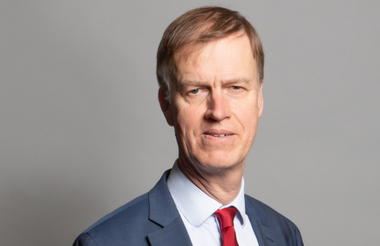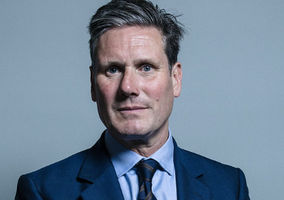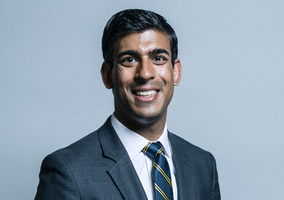Former chief secretary to the Treasury Stephen Timms has proposed a new government unit on the impact economy, to aid with Labour’s main five missions.
Writing in City AM, the candidate for East Ham suggested that a Labour government should set up an “office for the impact economy”, which would be “a joint Treasury-Business and Trade unit to partner with key stakeholders, working to align socially motivated capital and business with our missions”.
He said this would harness the ability of philanthropists, social and impact investors, and businesses to contribute to Labour’s ambitions.
Civil society leaders welcomed Timms’ intervention, with Pro Bono Economics director of policy and communications Nicole Sykes describing it as “a concrete and potentially powerful proposal from a serious politician”.
‘Potential to drive transformative change’
Timms wrote: “Philanthropy holds immense potential to drive transformative change. Unlocking its full impact requires strategic government collaboration.
“We could significantly amplify the resources to tackle our most pressing challenges through innovative use of public funding to crowd in philanthropic giving.”
He gave the example of the £85m Community Match Challenge launched during the Covid-19 pandemic, which paired government grants with funds from philanthropists, charitable funders and foundations.
“This collaborative approach supported charities and community organisations tackling food poverty, mental health, and unemployment,” he said.
Timms wrote that by expanding this approach, a Labour government could harness philanthropic capital to accelerate progress on its missions.
‘A major step forward’
Sykes said: “Bringing philanthropy and foundations into the heart of financial decision-making in government would be a major step forward.
“And, given the importance of a thriving civil society to the wellbeing of the country, it's an idea that should transcend the politics of the election. Irrespective of who forms the next government, bringing civil society into the heart of national policymaking is an approach worth pursuing.
“An office for the impact economy could help to make up for the currently woeful levels of engagement the Treasury undertakes with civil society.
“It would also find a suite of low hanging fruit available to drive forwards change, like increasing match funding across government departments and mandating financial advisers to talk to their clients about philanthropy.”
Dan Corry, CEO of NPC think tank, said: “Stephen Timms is right to point to this government's lack of interest in and support for philanthropy, impact investing, and businesses with purpose.
“Civil society and social enterprises should be added to that list. We hope that the next government will put this right and make it a key part of their agenda – including the institutional change needed to embed it.”
Charities ‘see and understand the barriers’
Sarah Elliott, chief executive of NCVO, said: “No one knows better how to solve societal challenges than the organisations who exist to improve the world for others.
“Charities are driven not by profit, but by purpose. They see and understand the barriers communities face, but what they can achieve is often limited by lack of funds, investment or policy decisions that fail to think long-term.
“We need easier routes in for social investment and philanthropic giving so charities can transform more lives, as well as for the voluntary sector to have an equitable seat at the table, alongside government and businesses, when new policy is devised.”
Clare Mills, deputy CEO of Charity Finance Group, said the charity sector has long urged the government to think more creatively about how it tackles problems such as inequality and poverty.
She said: “Recognising the enormous value of all those that deliver social impact and putting them at the heart of its decision-making will help the new government – however it is constituted – to bring about transformative change.
“The charity sector is comprised of more than 200,000 voluntary organisations and community groups, around a million members of staff and volunteers, all of whom deliver social impact every day.
“It will be important for us all to work with the new government from early on to establish common values and goals, and develop a shared understanding of the ecosystem in which we operate.
“If the new government is to leverage the ‘impact economy’ and work towards solving the country’s most complex issues, it must work hand in glove with charitable and social change organisations of every kind. It’s this inclusive 'nothing about us without us' approach that will be the key that unlocks the country’s potential.
“We’re keen to work with whomever forms the next government and we look forward to shaping the future together.”
‘Important intervention’
Tess Godley, policy and advocacy director at Better Society Capital, said the organisation was “thrilled” to see Timms’ call.
“As he states, a Labour government would not go far in achieving their five missions without the support of social and impact investors, philanthropists and purpose-driven business,” she said.
“We invite decision-makers to join his call in collaborating with us to take on Britain’s knottiest social challenges together, with expert partners who are well versed in providing support to communities who need it.”
Seb Elsworth, chief executive of Access – the Foundation for Social Investment said: “This important intervention goes to the heart of a persistent public policy issue – how will we find the money to tackle our biggest social problems, especially with limited financial resources?
“The proposals to create a new unit at the heart of government recognise the huge opportunity that exists to channel more private, philanthropic and public money into investments which improve people’s lives across the UK – driving sustainable and inclusive growth, as well as delivering a financial return. Blended finance is central to this and we look forward to more detail emerging.”
Related Articles












